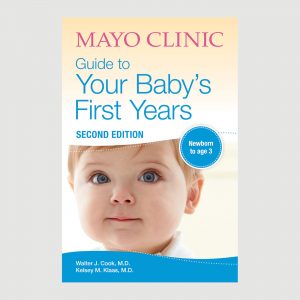
Colostrum may be referred to as nature’s first food and is sometimes called “liquid gold” due to its important role as the first source of nutrition for breastfed newborns. Colostrum is a yellow-tinted, thick, milky liquid that is produced in a pregnant person’s body immediately following the delivery of a newborn. Colostrum transitions to breastmilk after a couple of days. It contains polyunsaturated fats, proteins, vitamin B-12, vitamin K, zinc, growth factors, cytokines, high concentrations of antibodies and other healthy components that support an infant’s nourishment, immune function and gut health. Because colostrum has the power to sustain the life of a baby, it has — not surprisingly — gained attention from the wellness industry for supplements marketed to boost health.
Colostrum supplements are rapidly gaining in popularity for their purported promise of improved performance and health, but do they stand up?
What are colostrum supplements?
Colostrum supplementation refers to ingesting the substance outside of its natural use for newborn nutrition, typically in the form of a powder, pill or liquid. Supplemental forms of colostrum are from bovine sources, meaning they are produced by cows shortly after they give birth. While similar in composition to human colostrum, bovine colostrum contains a different profile of antibodies and growth factors tailored to the needs of newborn calves. While not specifically designed to support human life, bovine colostrum is nutrient rich and appears to be safe for human consumption. Whether it has health benefits for humans is less certain.
What can colostrum supplements do?
The marketing of one colostrum supplement maker refers to taking the product as a revival of health. This reflects the hype around colostrum’s potential to help with everything that ails you. While that sounds alluring, the evidence to back it up is less impressive. Studies to test colostrum’s effect on health conditions in athletes, patients with HIV, people without health conditions, and babies and children at risk of illness typically use doses higher than those available to the public, have small sample sizes and show mixed results in effectiveness.
Research is still in early stages when it comes to how colostrum supplementation can benefit those other than newborn babies. Currently, areas of health being evaluated include immune function, gut health, athletic performance and diarrhea prevention.
Colostrum is rich in protective antibodies, particularly immunoglobulin G, known as IgG, and immunoglobulin A, known as IgA, making it potentially advantageous for bolstering the immune system. This might appeal to anyone looking to take fewer sick days; however, the current research mostly supports this benefit only in elite athletes. This population is at risk of chronic infections due to factors such as insufficient calorie intake to meet health and activity demands, high cortisol and intense energy demands. In two small studies, runners taking colostrum had higher IgA levels than did runners not taking the supplement. And cyclists taking the supplement were less likely to get respiratory infections than were those in a placebo group. Still, more evidence is needed to understand whether these benefits apply to recreational athlete or nonathlete populations outside of clinical trials.
The bioactive compounds lactoferrin and growth factors are possibly responsible for any gut health benefits from colostrum supplementation. Colostrum improves the strength and leakiness of the gut wall, but whether this has benefits needs more research. A few small studies suggest that short-term supplementation of colostrum may reduce gastric symptoms in those diagnosed with celiac disease and colitis. A small study of runners found those taking colostrum had less gastric distress, especially when running in hot, humid conditions. Conversely, colostrum seems to be ineffective in improving intestinal function in those with short bowel syndrome.
Colostrum might help you avoid diarrhea in certain circumstances. Combining the potential immune-boosting and gut health effects previously mentioned, some research suggests that taking colostrum reduces both HIV-induced diarrhea and traveler’s diarrhea from Escherichia coli infection.
Roughly 75% of athletes take supplements to boost performance, and some are now adding colostrum to their routines. Colostrum contains growth factors like insulin-like growth factor-1, known as IGF-1, and transforming growth factor-beta, known as TGF-β, the natural versions of which play key roles in muscle growth, repair and regeneration. Research is mixed on colostrum’s effect. Some studies suggest that colostrum supplementation improves exercise performance and reduces markers of muscle damage in endurance athletes and after high-intensity interval training, also called HIIT. However, another study found no impact on football player performance.
Ultimately, more research on more conditions and more populations is needed to sift through the specifics of who can benefit from colostrum supplementation and how.
What’s a good dose for colostrum supplements?
The optimal dosing for colostrum supplementation has not been determined. Typical use and study doses have been between 10 and 60 grams a day, divided into at least two doses, for between four and 12 weeks. Popular brands of colostrum supplements cost about $1.50 a gram, meaning you’d have to spend roughly $15 a day to follow the minimum studied dosing. Very little research has looked at the outcomes of low-dose supplementation. An individual’s effective dose may vary depending on factors such as age, health status and specific health goals. Essentially, this is a high-cost supplement with mixed or minimal scientific evidence to support its price tag.
Who shouldn’t take colostrum supplements?
From immune support to muscle recovery, potential benefits seem to come with few physical adverse effects. There remain potential ethical issues of using newborn calf nutrition sources for human wellness, and there is the question of quality in an ineffectively regulated supplement product. Since colostrum does contain lactose and casein, it is not recommended for those with milk protein allergies or intolerances. It also is not recommended for people who are pregnant or lactating.
If your goal for taking a colostrum supplement is to treat or prevent a particular health outcome, there are likely more-effective strategies, so be sure to consult with a dietitian or member of your healthcare team about use and desired outcomes.

Relevant reading
Dementia and Alzheimer's Disease Bundle
Dementia is a serious health challenge. By some estimates, the number of people living with dementia could triple by 2050. In Mayo Clinic on Alzheimer's Disease and Other Dementias you will learn the earliest signs of abnormal aging, features of each stage of Alzheimer's disease, how dementia is diagnosed and…

















